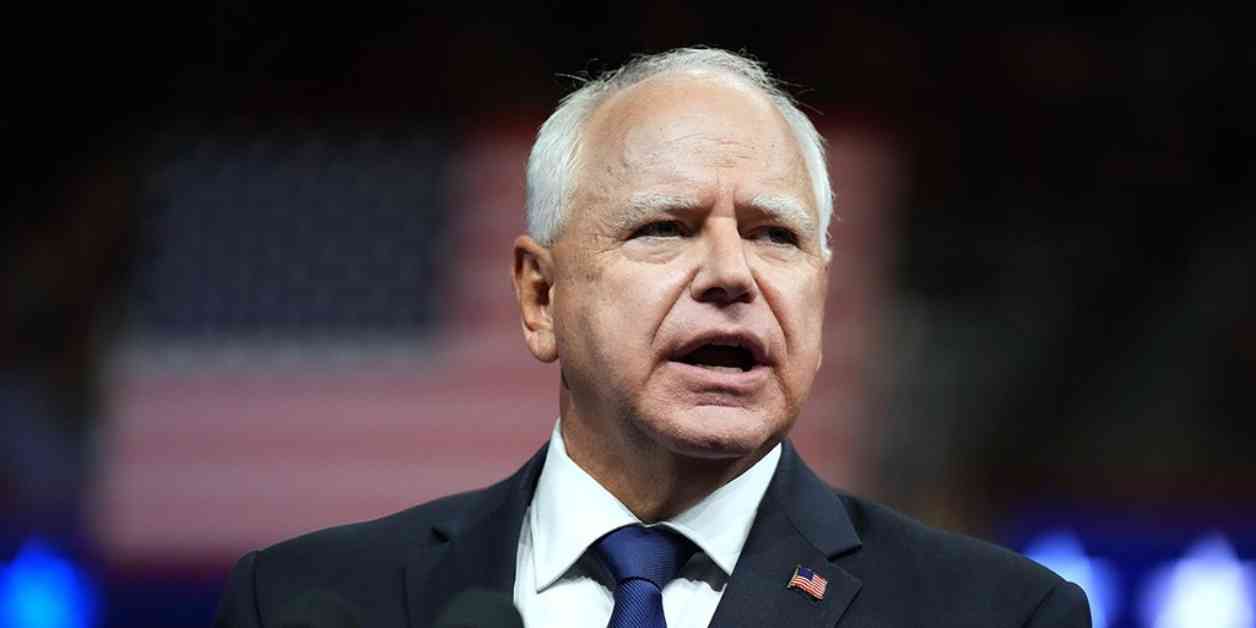Minnesota Governor Tim Walz is once again under fire for misrepresentation, this time in connection to a letter from the Nebraska Chamber of Commerce dating back to 2006. The resurfaced letter accuses Walz of falsely claiming to have received an award from the organization in 1993. This revelation comes as Walz campaigns for the vice presidency, raising questions about his credibility and honesty.
Background of the Accusation
During his initial run for Congress in Minnesota, Walz prominently featured the alleged award from the Nebraska Chamber of Commerce on his campaign website. However, it was later revealed that he had never actually received such an award. In a scathing letter addressed to Walz in 2006, Barry L. Kennedy, the then-president of the Nebraska Chamber of Commerce, clarified that there was no record of Walz being honored by the organization.
Kennedy’s Letter
In the letter dated November 1, 2006, Kennedy directly addressed Walz’s misrepresentation of his connection to the Nebraska Chamber of Commerce. He stated, “We researched this matter and can confirm that you have not been the recipient of any award from the Nebraska Chamber of Commerce.” Kennedy went on to request that Walz remove any reference to the organization from his biography, as it could be misconstrued as an endorsement of his candidacy. Additionally, Kennedy noted that the U.S. Chamber of Commerce had endorsed Walz’s opponent, Congressman Gil Gutknecht, for his support of small business issues.
Response to the Controversy
The letter from the Nebraska Chamber of Commerce was recently brought to light by Minnesota outlet Alpha News, reigniting the controversy that first gained attention in 2006. In response to inquiries about the issue, the Harris-Walz campaign defended the governor’s communication style, describing it as “open and off the cuff.” The campaign emphasized that Walz’s candid approach resonated with the American people, painting a contrast with the perceived lack of authenticity in traditional politicians like Donald Trump.
Historical Pattern of Misrepresentation
The accusation of misrepresentation in relation to the Nebraska Chamber of Commerce award is not an isolated incident for Walz. Over the years, he has faced criticism for allegedly misrepresenting his military background, particularly during his time in the Army National Guard. Despite serving 24 years in the Guard before retiring in 2005, Walz has been accused of exaggerating his rank and deployment history, casting doubt on his integrity and trustworthiness.
Military Record Controversy
One of the most significant points of contention surrounding Walz’s military record is his self-identification as a “retired Command Sergeant Major.” While he was promoted to this rank following a deployment to Italy in 2004, Walz did not complete the necessary coursework at the U.S. Army Sergeants Major Academy to retain the title in retirement. Instead, he retired as a master sergeant, a rank lower than Command Sergeant Major.
Criticism from Veterans
Veterans, including retired Navy captain Hung Cao and the former battalion commander of Walz’s Army National Guard unit, have spoken out against what they perceive as misleading claims about his military service. Cao, in particular, highlighted the discrepancy between Walz’s public persona as a retired Command Sergeant Major and the reality of his rank and assignments. The battalion commander, John Kolb, condemned Walz for continuing to use the title despite not earning it through official channels.
Evolution of the Campaign Narrative
In light of the mounting scrutiny over Walz’s military record, the Harris-Walz campaign has made adjustments to his biography on their website. Initially promoted as a “retired Command Sergeant Major,” Walz’s profile now reflects that he “served as a command sergeant major.” The change suggests a recalibration of the campaign’s messaging in response to the controversy surrounding his military background.
Implications for the Vice Presidential Campaign
As Walz vies for the vice presidency alongside Kamala Harris, the accusations of misrepresentation have cast a shadow over his candidacy. The repeated instances of misleading claims about his background raise concerns about his honesty and integrity, essential qualities for a potential vice president. The controversy surrounding Walz’s past actions threatens to undermine his credibility and trustworthiness in the eyes of voters.
Conclusion
The resurgence of the Nebraska Chamber of Commerce letter and the ongoing scrutiny of Walz’s military record underscore the challenges he faces in maintaining transparency and authenticity as a political candidate. While the Harris-Walz campaign has attempted to address the accusations and clarify discrepancies in his background, the lingering doubts about his credibility may continue to impact his electoral prospects. As the vice presidential campaign unfolds, the spotlight on Walz’s past misrepresentations serves as a cautionary tale about the importance of honesty and accountability in public service.




